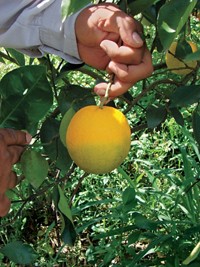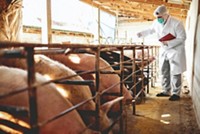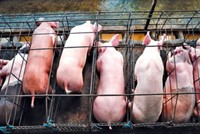Advertisement
Grab your lab coat. Let's get started
Welcome!
Welcome!
Create an account below to get 6 C&EN articles per month, receive newsletters and more - all free.
It seems this is your first time logging in online. Please enter the following information to continue.
As an ACS member you automatically get access to this site. All we need is few more details to create your reading experience.
Not you? Sign in with a different account.
Not you? Sign in with a different account.
ERROR 1
ERROR 1
ERROR 2
ERROR 2
ERROR 2
ERROR 2
ERROR 2
Password and Confirm password must match.
If you have an ACS member number, please enter it here so we can link this account to your membership. (optional)
ERROR 2
ACS values your privacy. By submitting your information, you are gaining access to C&EN and subscribing to our weekly newsletter. We use the information you provide to make your reading experience better, and we will never sell your data to third party members.
Antibiotics
Antibiotic sales for livestock on the rise in the US
Report suggests pork and beef industries increasing use of drugs important for human medicine
by Britt E. Erickson
December 13, 2019

US sales of medically important antibiotics for use in livestock rose 9% in 2018 compared with 2017, according to a December report from the US Food and Drug Administration.
Drugmakers estimate that most of the increase is due to sales to the pig and cattle industries. In contrast, they estimate that sales to the chicken industry decreased 17%. Actual usage data are not available, and some antibiotics are labeled for use in more than one species, so pharmaceutical companies make their best guess as to which species a drug is intended for.
Medically important antibiotics are those that the FDA has determined are important for human medicine. The agency collects annual sales data for antibiotics to evaluate antimicrobial resistance, as well as the efficacy and safety of the drugs in humans and food-producing animals.
Environmental groups are urging the FDA to prohibit the common practice of using medically important antibiotics to prevent disease in livestock. Meat producers should only use such drugs to treat sick animals or to control a disease outbreak, they say.
“The antibiotics doctors and patients have relied on for decades are increasingly failing when we really need them,” David Wallinga, a physician and senior health officer at the Natural Resources Defense Council, says in a statement. “The beef and pork industries must stop squandering these precious medicines, which jeopardizes their effectiveness, before it’s too late.”





Join the conversation
Contact the reporter
Submit a Letter to the Editor for publication
Engage with us on Twitter